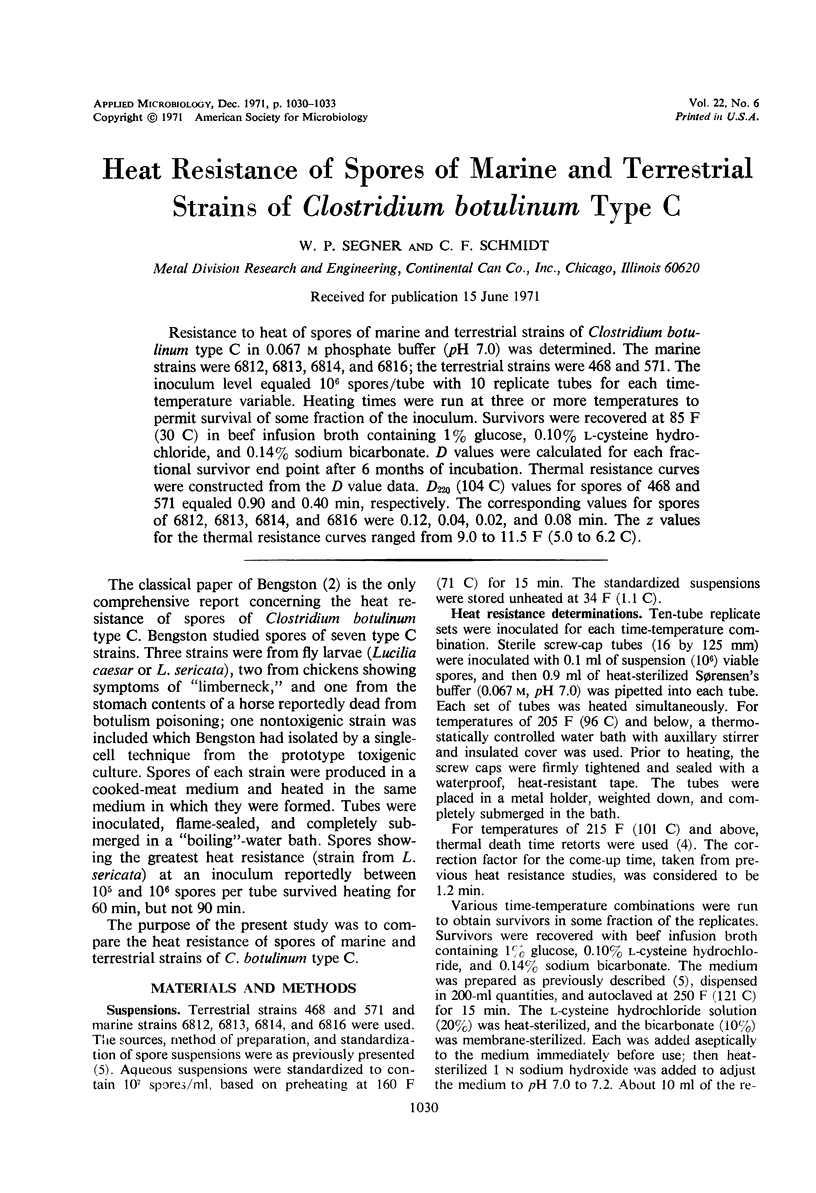Abstract
Resistance to heat of spores of marine and terrestrial strains of Clostridium botulinum type C in 0.067 m phosphate buffer (pH 7.0) was determined. The marine strains were 6812, 6813, 6814, and 6816; the terrestrial strains were 468 and 571. The inoculum level equaled 106 spores/tube with 10 replicate tubes for each time-temperature variable. Heating times were run at three or more temperatures to permit survival of some fraction of the inoculum. Survivors were recovered at 85 F (30 C) in beef infusion broth containing 1% glucose, 0.10% l-cysteine hydrochloride, and 0.14% sodium bicarbonate. D values were calculated for each fractional survivor end point after 6 months of incubation. Thermal resistance curves were constructed from the D value data. D220 (104 C) values for spores of 468 and 571 equaled 0.90 and 0.40 min, respectively. The corresponding values for spores of 6812, 6813, 6814, and 6816 were 0.12, 0.04, 0.02, and 0.08 min. The z values for the thermal resistance curves ranged from 9.0 to 11.5 F (5.0 to 6.2 C).
Full text
PDF



Selected References
These references are in PubMed. This may not be the complete list of references from this article.
- Segner W. P., Schmidt C. F., Boltz J. K. Enrichment, isolation, and cultural characteristics of marine strains of Clostridium botulinum type C. Appl Microbiol. 1971 Dec;22(6):1017–1024. doi: 10.1128/am.22.6.1017-1024.1971. [DOI] [PMC free article] [PubMed] [Google Scholar]



